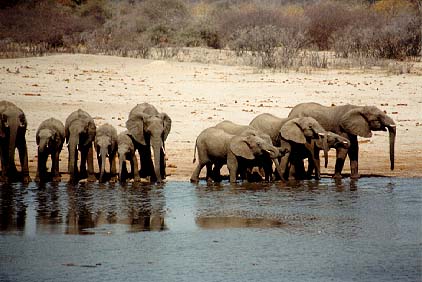
The elephant is probably one of the world's
best-known animals; depictions of elephants in
Western literature date back at least to Matthew
Paris' Chronica Majora, a 13th century chronicle, and
elephants have been kept in zoos and menageries for
several hundred years.
There are two distinct species of elephant:
The African elephant
This species is physically larger; both males and females have tusks which can grow to extreme length. Males are larger than females and can grow to 7 tonnes mass. The image above depicts a male and a female African elephant.
The Indian elephant
Smaller than the African elephant, with only males possessing tusks. Although both species are capable of domestication, it is only the Indian elephant which is commonly trained, often for forestry work. Elephants are normally considered to be among the most intelligent mammals, probably ranking behind dolphins and the higher primates. Groups of elephants have highly-established social frameworks and sophisticated communication calls. Young animals are cared for within an extended family structure, and groups of animals will co-operate in searching out food and water when these are scarce.
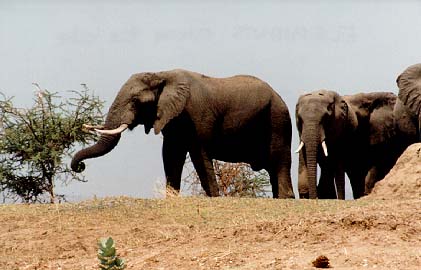
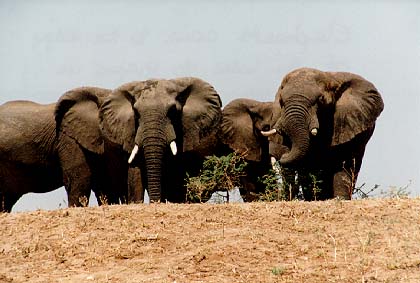
Ivory Trade
At present, all international trade in elephant products, including ivory, is banned because all elephant populations are listed on Appendix I of the Convention on International Trade in Endangered Species of Wild Fauna and Flora (CITES). This international treaty prohibits all trade in elephant products such as meat and hides, as well as ivory. The Asian elephant has been on this list since 1975. The African elephant was placed on Appendix I by parties to the Convention in 1990.
Some African nations, who sell ivory and pay for conservation and anti-poaching programs from the proceeds, have ignored the ban. South Africa, which supported the ban, is considering selling hides (but not ivory) from the animals that are killed each year to prevent trampling of the habitat and subsequent elephant decline. Since the ivory ban, ivory carving industries in Asia have virtually collapsed. Several African countries have reported a reduction in poaching, while others have not noted any change. Factors such as additional law enforcement and international financial assistance have played an important role in combatting poaching.
WWF and IUCN assist governments in establishing individual elephant-related conservation programs in Africa and in increasing funds for anti-poaching measures.
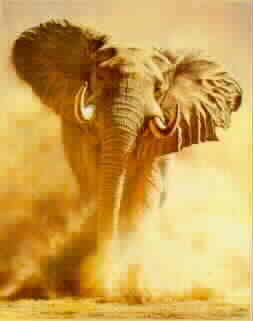
 August, 1998
August, 1998
 International ivory
trading to begin as early as 1999. According to the
Humane Society of the U.S. (HSUS), trophy hunting is
opposed by 84 percent of the American public, and
reestablishing the trade in ivory is even more
unpopular.
International ivory
trading to begin as early as 1999. According to the
Humane Society of the U.S. (HSUS), trophy hunting is
opposed by 84 percent of the American public, and
reestablishing the trade in ivory is even more
unpopular.
 Friends of the Asian
Elephants. This foundation locates, rehabilitates
and provides medical treatment for elephants.
Friends of the Asian
Elephants. This foundation locates, rehabilitates
and provides medical treatment for elephants.
 Want To Adopt An
Elephant? Riddle's Elephant & Wildlife Sanctuary in
Arkansas. A truly remarkable place!!!
Want To Adopt An
Elephant? Riddle's Elephant & Wildlife Sanctuary in
Arkansas. A truly remarkable place!!!
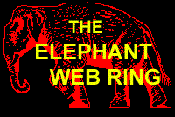  This Elephant Web Ring site is owned by
Donna Madding
. This Elephant Web Ring site is owned by
Donna Madding
.
Do you want to join the Elephant Web Ring? |
|---|
| [Skip Prev] [Prev] [Next] [Skip Next] [Random] [Next 5] [List Sites] |
